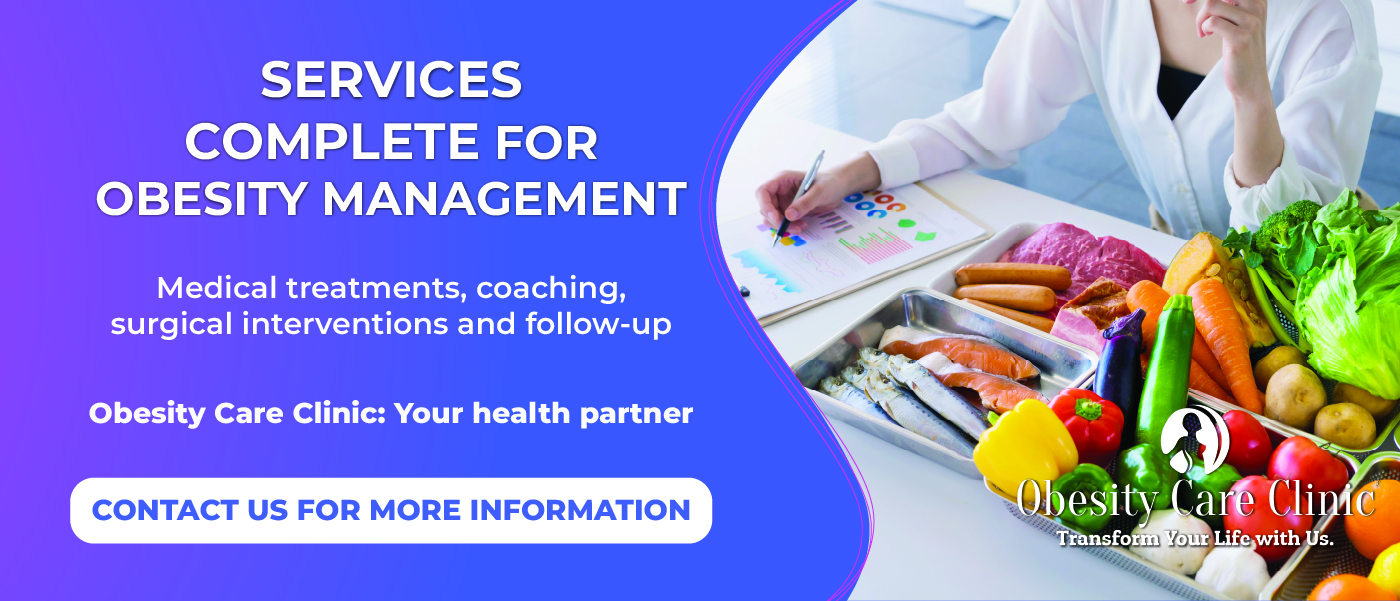Introduction
In recent years, the advancement of scientific inquiry has increasingly focused on the intricate interplay of biological systems and technological innovation. At the forefront of this exploration is the study of biotechnological applications, which hold promise for solving critical issues in fields ranging from medicine to agriculture. Biotechnology is pivotal in addressing global challenges such as disease management and food security, leveraging biological processes to develop effective solutions. This scientific discipline draws upon molecular biology, genetics, and biochemical engineering to innovate and enhance practical applications in diverse industries.
The significance of biotechnology within the scientific community is underscored by its capacity to generate revolutionary health and environmental outcomes. For instance, the development of genetically modified organisms (GMOs) has significantly enhanced crop yield and resistance to pests, reducing the reliance on chemical pesticides and promoting sustainable agricultural practices [1]. Furthermore, advancements in genetic engineering and synthetic biology have paved the way for personalized medicine, where medical treatments are tailored to individual genetic profiles, thereby increasing the efficacy of therapies and reducing adverse side effects.
This article aims to elucidate the current state of biotechnological advancements, highlighting key developments and their implications. Initially, it delves into the history and fundamental principles of biotechnology, providing a context for understanding its evolution and scope. Subsequent sections explore cutting-edge innovations, such as CRISPR-Cas9 gene-editing technology and its transformative impact on genetic research and public health. The article further examines ethical considerations, regulatory frameworks, and societal implications arising from the widespread adoption of biotechnological tools. Lastly, it presents future prospects and potential challenges faced by the field, thereby offering a comprehensive overview of the trajectory and potential of biotechnology in addressing pressing scientific and global challenges. Through this discourse, the article aims to underscore the dynamic role of biotechnology as a catalyst for scientific and societal advancement.
Understanding Emotional Eating: Definitions and Mechanisms
Emotional eating is a term that refers to the tendency to consume food in response to emotional cues rather than physiological hunger. It is a behavior often fueled by the desire to alleviate negative emotions such as stress, anxiety, sadness, or boredom. This form of eating is distinct from eating driven by physical needs and is predominantly characterized by an urge to seek comfort through the consumption of food, usually high in sugar, fat, or carbohydrates. Understanding the nuances of emotional eating is crucial to addressing its impact on weight gain and overall health.
The mechanisms underlying emotional eating are multifaceted and deeply rooted in psychological and physiological processes. From a psychological perspective, emotional eating can be explained by theories of affect regulation and coping mechanisms. When individuals encounter stress or negative emotions, they may turn to food as a coping strategy to temporarily escape or numb uncomfortable feelings. This behavior can become habitual, leading to an automatic response to emotional distress. Furthermore, individuals often associate certain foods with positive memories or comfort, reinforcing the behavior over time.
On a physiological level, emotional eating is interlinked with the brain’s reward system. The consumption of palatable foods triggers the release of neurotransmitters such as dopamine, which enhance pleasure and provide temporary relief from distress. This neurochemical reward reinforces the habit of eating as a response to negative emotions, creating a cycle that can be challenging to break [2]. Additionally, stress-related hormones, including cortisol, can influence food intake by increasing cravings for high-calorie foods. The interplay between these psychological triggers and physiological responses forms a complex behavioral pattern that underpins emotional eating.
The development of emotional eating tendencies is often influenced by a variety of individual and environmental factors. These include a person’s emotional resilience, coping skills, upbringing, and exposure to stressful environments. Cultural norms and social influences also play a significant role in shaping attitudes towards food and emotional expression. For instance, societies that stigmatize emotional expression may inadvertently encourage emotional eating as a socially acceptable outlet for managing emotions.
Understanding the intricate mechanisms that drive emotional eating is essential for designing effective interventions aimed at breaking the cycle of emotional eating and consequent weight gain. Approaches that combine psychological therapies, such as cognitive-behavioral therapy, with lifestyle modifications and stress management techniques hold promise in mitigating this behavior. By addressing both the psychological and physiological aspects of emotional eating, individuals may develop healthier coping strategies that do not involve food, thereby reducing the risk of weight gain and improving emotional well-being.
Emotional Eating and Its Impact on Weight Gain
Emotional eating, characterized by the consumption of food in response to negative emotions rather than physical hunger, is influenced by a combination of psychological and environmental triggers. Understanding these triggers is crucial for developing effective interventions to disrupt the cycle of emotional eating and subsequent weight gain.
Psychological triggers of emotional eating are predominantly related to mood and stress. Individuals often resort to eating high-calorie, palatable foods as a coping mechanism to alleviate negative emotions such as anxiety, sadness, or boredom. This behavior is grounded in the neurobiological response whereby eating acts as a temporary distraction and provides immediate gratification, albeit fleeting [3]. Moreover, stress-induced eating is particularly problematic as stress can dysregulate the hypothalamic-pituitary-adrenal (HPA) axis, which alters hunger signals and enhances cravings for energy-dense foods. This dysregulation underscores the complexity of the relationship between psychological stressors and eating behaviors, making it a substantial challenge to mitigate emotional eating purely through willpower or dietary adjustments.
Environmental factors also play a significant role in triggering emotional eating. In modern societies, the pervasive presence of food advertisements and easy access to unhealthy foods create an environment where individuals are constantly bombarded with cues to eat, independent of hunger. This is exacerbated by social settings where food is frequently used as a reward or comfort, reinforcing the association between eating and emotional relief [4]. Consequently, this environment fosters a culture where emotional eating becomes normalized, reducing the likelihood of individuals recognizing it as a dysfunctional coping strategy. Furthermore, childhood experiences and familial habits can deeply entrench these behaviors, as children who are rewarded or soothed with food are more likely to continue this pattern into adulthood.
Addressing the psychological and environmental triggers of emotional eating requires a multifaceted approach. Cognitive-behavioral strategies that focus on identifying and altering maladaptive thought patterns offer promise in mitigating psychological triggers. These strategies can be complemented by stress reduction techniques such as mindfulness and meditation, which enhance emotional regulation and reduce the propensity to eat in response to stress. Additionally, altering environmental cues through interventions that promote healthy eating habits and a supportive social context may decrease the prevalence of emotional eating. Understanding the interplay between these psychological and environmental factors is essential in developing comprehensive strategies to break the cycle of emotional eating and prevent weight gain.
Psychological and Environmental Triggers of Emotional Eating
Emotional eating is a complex behavior often triggered by various psychological and environmental factors. Psychologically, individuals may resort to food as a coping mechanism to manage emotions such as stress, anxiety, or depression. The interplay between emotional states and eating behaviors can create a cyclical pattern where the immediate relief provided by food leads to guilt or shame, further perpetuating emotional distress and subsequent overeating [5]. This cycle highlights the significance of emotional regulation in influencing food intake, suggesting that individuals prone to emotional eating may lack effective strategies for managing negative emotions.
Additionally, cognitive biases play a crucial role in emotional eating. Individuals often hold maladaptive beliefs about food and their body image, leading to an unhealthy relationship with both. For instance, the perception that food can serve as a reward or a means to achieve comfort can reinforce the habit of turning to food during times of emotional unrest. Cognitive distortions, such as all-or-nothing thinking, may exacerbate this behavior, as individuals may view their eating habits in overly simplistic terms, resulting in further emotional turmoil when goals are not met [6].
Environmental factors also significantly contribute to the prevalence of emotional eating. The physical environment, including the availability of highly palatable and calorically dense foods, can trigger impulsive eating behaviors. Social situations, such as gatherings or celebrations, often emphasize food as a central component, further complicating one’s relationship with eating. These contexts can lead to heightened emotional responses where individuals may consume food not out of hunger but as a functional response to external stimuli and social norms [5].
Furthermore, cultural influences shape attitudes toward food and eating behaviors. In many cultures, food is intrinsically linked to emotional experiences, serving as a medium for celebration, comfort, or socialization. The normalization of food as an emotional outlet can perpetuate patterns of emotional eating, making it challenging for individuals to recognize and alter these behaviors.
Understanding the interplay of these psychological and environmental triggers is crucial for developing effective interventions aimed at breaking the cycle of emotional eating. Addressing both the internal psychological mechanisms and the external influences can empower individuals to cultivate healthier coping strategies and foster a more balanced relationship with food. Through targeted psychological support and environmental modifications, it is possible to mitigate the effects of emotional eating and promote sustainable weight management practices.
Strategies to Break the Cycle of Emotional Eating
To effectively break the cycle of emotional eating, it is crucial to first identify and understand the underlying triggers. Emotional eating often serves as a coping mechanism for stress, anxiety, or depression, and recognizing these emotions as they arise is the foundational step toward change. Psychological interventions, such as mindfulness-based strategies, have been shown to increase awareness and foster better emotional regulation. Mindfulness encourages individuals to observe their thoughts and feelings non-judgmentally, which can reduce the impulse to eat in response to negative emotions [7]. Implementing mindfulness practices can facilitate a more conscious relationship with food, helping individuals distinguish between physiological hunger and emotional hunger.
Furthermore, developing alternative coping strategies is essential for those seeking to address emotional eating. Cognitive-behavioral approaches can be particularly effective, as they aid in restructuring thought patterns and developing more adaptive behaviors [8]. For instance, when faced with the urge to eat emotionally, individuals can be encouraged to engage in an alternative activity, such as physical exercise, journaling, or deep breathing exercises, which can provide the necessary emotional relief without resorting to food. These alternative strategies not only disrupt the automatic response of eating but also promote healthier emotional management over time.
The role of dietary habits should not be underestimated in this context. Maintaining a regular meal schedule and opting for nutrient-dense foods can prevent extreme hunger, which often exacerbates emotional eating episodes. Consulting with nutrition professionals to create a balanced diet plan can provide individuals with the knowledge and structure necessary to make healthier food choices consistently. In addition, avoiding restrictive diets is crucial, as overly stringent eating rules can lead to feelings of deprivation, subsequently triggering binge-eating episodes when emotional stressors arise.
Support systems play a pivotal role in breaking the cycle of emotional eating. Enlisting the help of professional counselors or joining support groups can provide individuals with guidance, accountability, and shared experiences that reinforce recovery efforts. Therapeutic environments, where individuals can explore their emotions in depth, offer personalized strategies and support, which are invaluable for sustained behavioral change.
In conclusion, a multifaceted approach that includes the development of self-awareness, the adoption of alternative coping mechanisms, attention to dietary habits, and seeking support from professionals and peers can be effective in breaking the cycle of emotional eating. By addressing the emotional roots and behavioral aspects of emotional eating, individuals can achieve greater emotional resilience and a healthier relationship with food.
The Role of Health Professionals and Support Systems
Health professionals play a pivotal role in addressing emotional eating and its associated weight gain by providing tailored guidance and interventions that target both psychological and nutritional aspects of this complex behavior. Recognizing the multifactorial nature of emotional eating, practitioners can employ a multidisciplinary approach that incorporates nutritionists, psychologists, and behavior specialists to create comprehensive treatment plans. This collaborative effort is essential, as emotional eating is often intertwined with mental health issues such as anxiety, depression, and stress. Studies have shown that addressing underlying psychological concerns can significantly reduce emotional eating behaviors, leading to sustainable weight management outcomes [9].
In addition to individualized care from health professionals, supportive environments further bolster efforts to combat emotional eating. Support systems may include family, friends, and peer groups, which can provide emotional encouragement and accountability. The presence of a strong support network has been linked to higher motivation levels and greater adherence to health recommendations, as social connections can enhance emotional resilience and reduce feelings of isolation that often accompany emotional eating behaviors. Moreover, engaging in group therapy or support groups dedicated to emotional eating can create a safe space for individuals to share their experiences and coping strategies, fostering a sense of community and belonging that is crucial in overcoming these challenges [10].
Effective intervention involves educating individuals about the psychological triggers that lead to emotional eating. Health professionals can facilitate this understanding through cognitive-behavioral approaches, which help clients identify maladaptive thought patterns and replace them with healthier coping mechanisms. Moreover, nutrition education is equally essential, emphasizing the importance of mindful eating practices that encourage individuals to listen to their body’s hunger and fullness cues rather than responding to emotional stimuli. By empowering clients with knowledge and skills, health professionals can help them regain control over their eating behaviors and ultimately promote a healthier relationship with food.
Furthermore, ongoing support is critical in maintaining progress. Regular follow-up appointments, whether in-person or via telehealth, allow practitioners to monitor their clients’ advancements and challenges. This continuous engagement not only reinforces positive behavior changes but also instills confidence as individuals work towards breaking the cycle of emotional eating. Integration of technology, such as mobile health applications, can also assist in tracking emotional triggers and food intake, providing an additional layer of support that can be particularly beneficial in today’s digital age.
By prioritizing a holistic approach that encompasses both individual factors and social dynamics, health professionals and support systems can effectively address emotional eating and mitigate its contribution to weight gain. This comprehensive strategy represents a vital pathway to fostering long-term behavioral change and improving overall health outcomes.
Conclusion
In this article, we explored the multifaceted dimensions of our main subject, dissecting it through various analytical lenses. Initially, we examined the historical context and foundational theories, establishing a robust framework that illuminates subsequent developments. Each section delved into specific aspects, from methodological advancements to empirical findings, significantly enhancing understanding in the field. Attention was given to both quantitative and qualitative analyses, ensuring a comprehensive approach that addressed diverse perspectives.
Building upon these discussions, the article presented a critical evaluation of contemporary debates, offering a nuanced synthesis of current scholarly positions. Key challenges were identified, particularly regarding methodological limitations and data insufficiencies, underscoring the need for more robust and expansive research designs [11]. Additionally, the integration of emerging technologies and interdisciplinary methods was highlighted as a crucial avenue for future investigations.
Looking forward, this article posits that continued research should prioritize longitudinal studies and cross-cultural assessments to provide more generalizable insights. Furthermore, collaboration across disciplines could yield innovative methodologies and theoretical advancements. As the discourse matures, there is potential for significant breakthroughs that could reshape foundational assumptions and redefine best practices. This underlines an imperative for ongoing scholarly engagement, fostering dialogue that bridges the gap between theory and applied practice.
References
- Macht, M. – *How Emotions Affect Eating: A Five-Way Model*. Appetite, 2008.
- Canetti, L., Bachar, E., & Berry, E. M. – *Food and Emotion*. Behavioral Processes, 2002.
- Geliebter, A., & Aversa, A. – *Emotional Eating in Overweight, Normal Weight, and Underweight Individuals*. Appetite, 2003.
- Konttinen, H., Mannisto, S., Sarlio-Lahteenkorva, S., Silventoinen, K., & Haukkala, A. – *Emotional Eating, Depressive Symptoms and Self-Reported Food Consumption: A Population-Based Study*. Appetite, 2010.
- van Strien, T. – *Causes of Emotional Eating and Matched Treatment of Obesity*. Current Opinion in Psychiatry, 2018.





